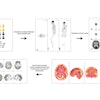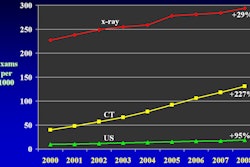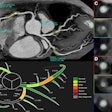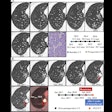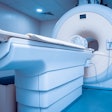Colonoscopy is associated with substantial reductions in colorectal cancer incidence, according to a new study. Colonoscopy reduced cancer risk by 77% overall, and in contrast to other recent studies, it protected both the left and right sides of the colon.
Results from the large case-controlled study confirm the effectiveness of colonoscopy in reducing colorectal cancer (CRC) incidence, even when conducted in the community healthcare setting rather than an academic hospital, wrote lead researcher Hermann Brenner, MD, and colleagues from the University of Heidelberg in Heidelberg, Germany, and University Hospital Mannheim in Mannheim, Germany.
"Our results corroborate the evidence that colonoscopy may also substantially reduce CRC incidence in the community setting, and they suggest that this risk reduction may be stronger than shown by previous studies," the authors wrote (Annals of Internal Medicine, January 3, 2011, Vol. 154:1, pp. 22-30).
Colorectal cancer accounts for more than a million new diagnoses and more than 500,000 deaths each year, and colonoscopy has been shown to reduce the risk of developing the disease, Brenner and colleagues wrote. However, its effectiveness in the community setting rather than at academic research institutes has been less clear.
The case-controlled study aimed to assess the association between previous colonoscopy and risk for colorectal cancer, based on 10-year outcomes in 1,688 patients with colorectal cancer and 1,932 control participants, all ages 50 years or older.
Patients from 22 hospitals in a single region of Germany with a first diagnosis of invasive primary colorectal cancer, ages 30 years or older, were eligible to participate. People with a history of colorectal cancer we excluded.
The group obtained a detailed lifetime history of risk factors and preventive factors for colorectal cancer for each participant, including patient and family histories and results of previous colonoscopies, along with medical data from self-reports and medical records.
Lower disease risk after colonoscopy
Overall, colonoscopy in the preceding 10 years was associated with a 77% lower risk for colorectal cancer, the authors wrote. The results showed a strong risk reduction for all cancer stages and all ages, except for right-sided cancer in participants ages 50 to 59. Risk reduction increased over the years in both the right and the left colon.
"Risk reduction was particularly pronounced for cancer in the left colon and rectum, but a substantial risk reduction was also seen for cancer in the right colon," the group reported.
Risk reduction associated with colonoscopy reached 82% overall in the most recent period (2006-2007).
For right- but not left-sided cancer, an age gradient in risk reduction was observed, with only moderate (26%) and statistically nonsignificant risk reduction in persons younger than 60 years of age.
The adjusted odds ratio (OR) for any colorectal cancer was 0.23 (95% confidence interval [CI]: 0.19-0.27); for right-sided colorectal cancer it was 0.44 (CI: 0.35-0.55) and for left-sided cancer it was 0.16 (CI: 0.12-0.20), Brenner and colleagues reported.
Risk reduction also varied substantially by colon region.
"A preceding colonoscopy was associated with strong and statistically significant risk reduction of cancer at any single subsite assessed, even though risk reductions were somewhat less pronounced for types of cancer located at subsites from the cecum to the descending colon (adjusted ORs from 0.31 to 0.58) than for sigmoid colon cancer and rectal cancer (adjusted OR, 0.14 and 0.13, respectively)," they wrote.
Most case patients had stage II or stage III cancer (31% each), and the risk reduction was strong for all cancer stages. The study found no major differences between screening-detected cancer and cancer detected on the basis of symptoms or incidentally.
As for demographics, patients with colorectal cancer generally had lower education levels than control participants (p < 0.001), and more cancer patients had never received general health screening (p < 0.001).
Case patients were also more likely to have smoked and to have a positive family history of colorectal cancer (p = 0.002). Most patients, both case and control, were overweight or obese (mean body mass index, 26.5 kg/m2 and 26.8 kg/m2, respectively). But case patients reported lower use of nonsteroidal anti-inflammatory drugs and hormone replacement therapy than control participants (p < 0.001 for both).
As for limitations, the study was observational, with the potential for residual confounding and selection biases, Brenner and colleagues noted, also cautioning that the results do not specifically apply to screening colonoscopy but to all colonoscopy results. The goal of screening should be a reduction of colorectal cancer rather than mortality, which was not addressed in the study, they added.
Finally, patients with more advanced disease or older patients who face higher barriers to participation were somewhat underrepresented, as suggested by the low proportion of older patients and those with stage IV cancers compared to population registries.
"Tentatively higher risk reduction for advanced-stage disease than for early-stage disease found in our analysis suggests that associated reduction of mortality might be of similar or even higher magnitude," according to the authors.
The study adds to a growing body of evidence that colonoscopy with polypectomy may substantially reduce the incidence of colorectal cancer, they wrote.
"Our results further suggest that major reduction may also be achieved for right-sided CRC, even in the community setting, when widespread offer of colonoscopy is paired with major efforts in terms of training and quality assurance," they concluded.
By Eric Barnes
AuntMinnie.com staff writer
January 10, 2011
Cancer survival rates lower in U.K., Denmark: study, December 23, 2010
Many preventable cancers caught at late stage: CDC, November 24, 2010
In partnership, some gastroenterologists embrace VC, November 15, 2010
Higher colonoscopy complication rates found in seniors, October 19, 2010
VC finds perforations from incomplete colonoscopy, October 24, 2008
Copyright © 2011 AuntMinnie.com



